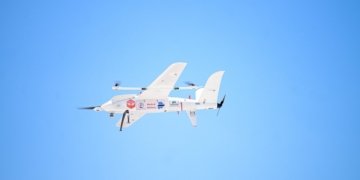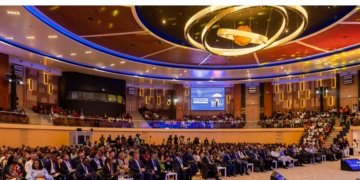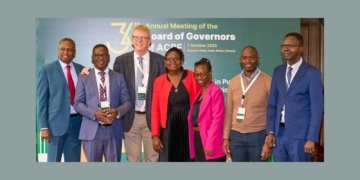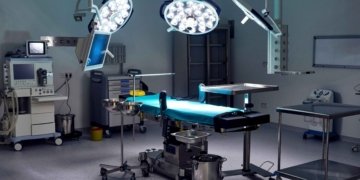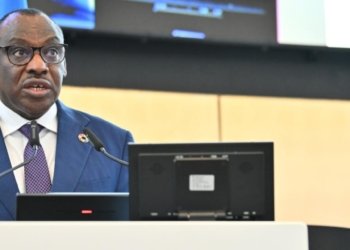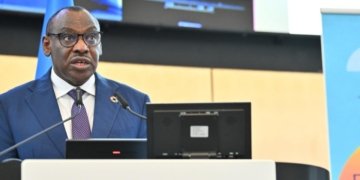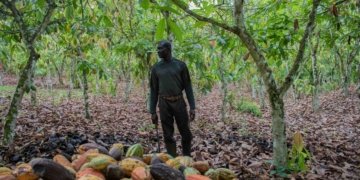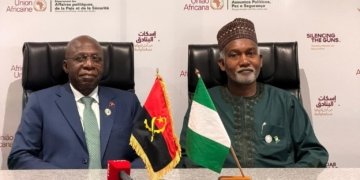DAKAR, Senegal (BG) – In a major boost for Africa’s vaccine production capabilities, Senegal’s Institut Pasteur de Dakar (IPD) and its subsidiary VaxSen have secured a $45 million financing package to enhance vaccine manufacturing and distribution across the continent, according to the African Development Bank (AfDB) on Tuesday.
The investment will support the expansion of IPD’s MADIBA facility, a cutting-edge vaccine production hub, while advancing Africa’s public health agenda by strengthening local supply chains, creating jobs, and fostering economic growth.
The financing was jointly announced by the U.S. International Development Finance Corporation (DFC), the African Development Bank (AfDB), and the International Finance Corporation (IFC) on Dec. 13, 2024, during a signing ceremony attended by Senegalese President Bassirou Diomaye Faye.
It aligns with the African Union’s Vision 2040, which aims to produce 60% of Africa’s vaccine needs locally, reducing reliance on imports.
“This partnership with the Institut Pasteur de Dakar demonstrates IFC’s commitment to strengthening Africa’s health infrastructure. By enabling local vaccine production, we are building a more resilient healthcare system to better address current and future challenges,” said Makhtar Diop, Managing Director of IFC.
The financing is seen as a critical step in tackling gaps in Africa’s vaccine supply chain and improving pandemic preparedness.
It also advances key global development objectives, including United Nations Sustainable Development Goals on Good Health and Well-being (SDG 3), Decent Work and Economic Growth (SDG 8), and Industry, Innovation, and Infrastructure (SDG 9).
The AfDB emphasized its strategic commitment to supporting the continent’s pharmaceutical sector.
“The African Development Bank is honored to support this critical initiative, which aligns with our 2030 Vision and Action Plan for the Development of Africa’s Pharmaceutical Industry,” said Ousmane Fall, AfDB’s Acting Director of Industrial and Trade Development.
The U.S. International Development Finance Corporation echoed this sentiment, highlighting its previous support for IPD’s MADIBA facility.
“DFC is proud to have supported IPD with a $15 million loan and an earlier $3 million technical assistance grant. These contributions enabled the construction of the MADIBA facility and the expansion of flexible vaccine manufacturing capacity,” said Nisha Biswal, Deputy Director at DFC.
The CEO of Institut Pasteur de Dakar, Dr. Amadou Sall, celebrated the agreement as a milestone for Africa’s health sovereignty.
“This partnership illustrates the power of collaboration in transforming health systems in Africa. With this funding, we are moving closer to vaccine sovereignty and ensuring that no African is left behind in accessing life-saving solutions.”
The financing will be channeled through VaxSen, IPD’s subsidiary responsible for the commercialization and sustainable distribution of vaccines.
“VaxSen is committed to leveraging innovation and partnerships to address health equity challenges. This financing marks a pivotal moment in delivering sustainable access to vaccines across Africa,” said Assietou Diouf, CEO of VaxSen.
Challenges and Initiatives in African Vaccine Production
Vaccine production in Africa has historically been limited, with the continent producing less than 1% of its vaccines. However, recent initiatives are aiming to change this.
The African Union, in collaboration with the Africa CDC and other partners, launched the Partnerships for African Vaccine Manufacturing (PAVM) in 2021 to develop, produce, and supply over 60% of the continent’s vaccine needs by 2040.
This ambitious plan includes interim goals of reaching 10% production by 2025 and 30% by 2030.
The establishment of PAVMA by Gavi, the Vaccine Alliance, is also expected to provide significant financial support to boost local vaccine manufacturing capacity.
Vaccine distribution in Africa has faced significant challenges, particularly highlighted during the COVID-19 pandemic.
Vaccines for other diseases like Ebola and malaria have also been limited.
The Ebola vaccine, Ervebo, was only recently made available in limited quantities for outbreak response, with a global stockpile established in January 2021.
The malaria vaccine, RTS,S/AS01 (Mosquirix), has only recently been rolled out in pilot programs in several African countries, marking a significant step towards combating this deadly disease.
The partnership between Senegal, its global financial partners, and IPD signals a transformative step towards vaccine independence in Africa, strengthening the region’s resilience against future health challenges.


